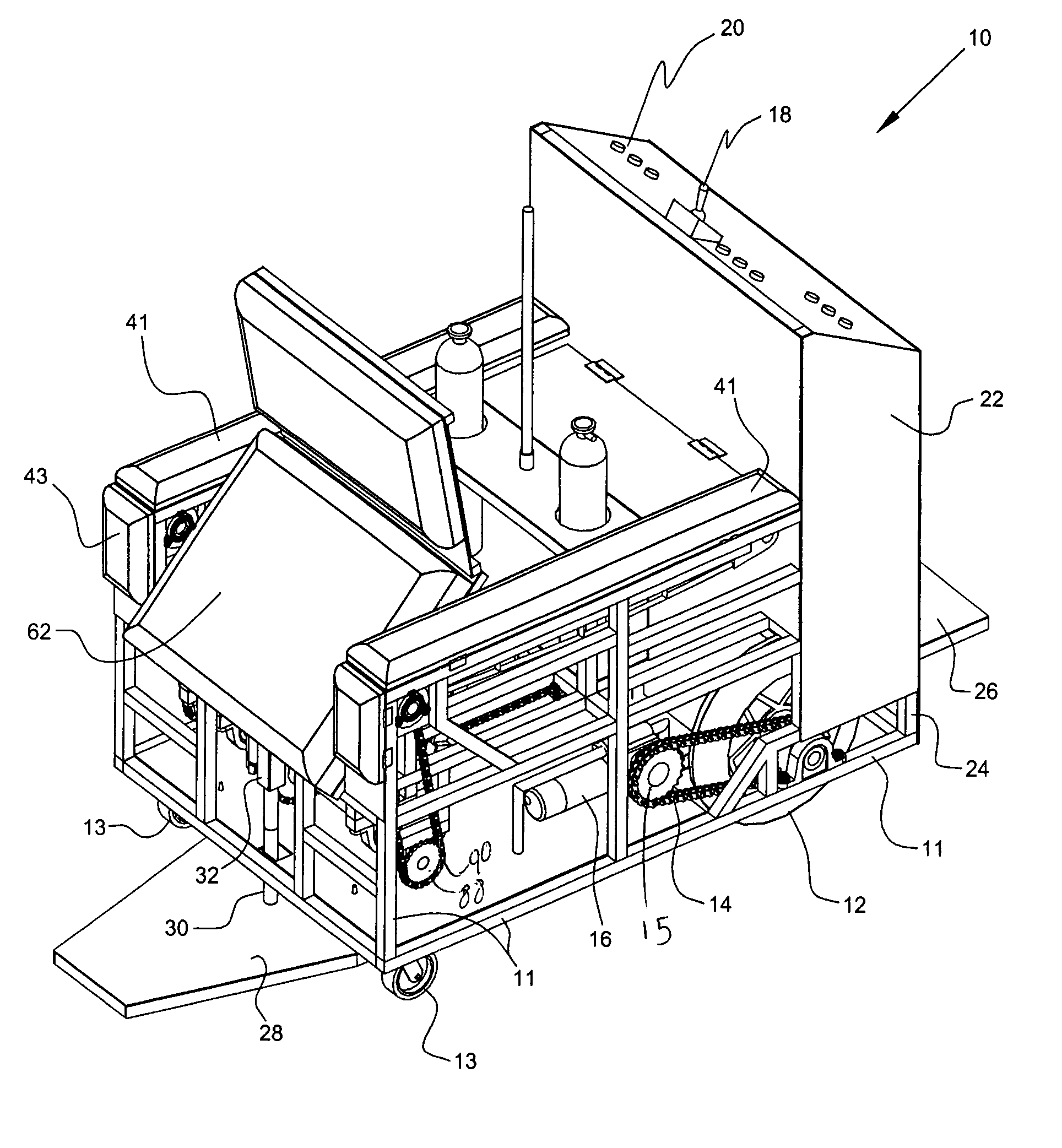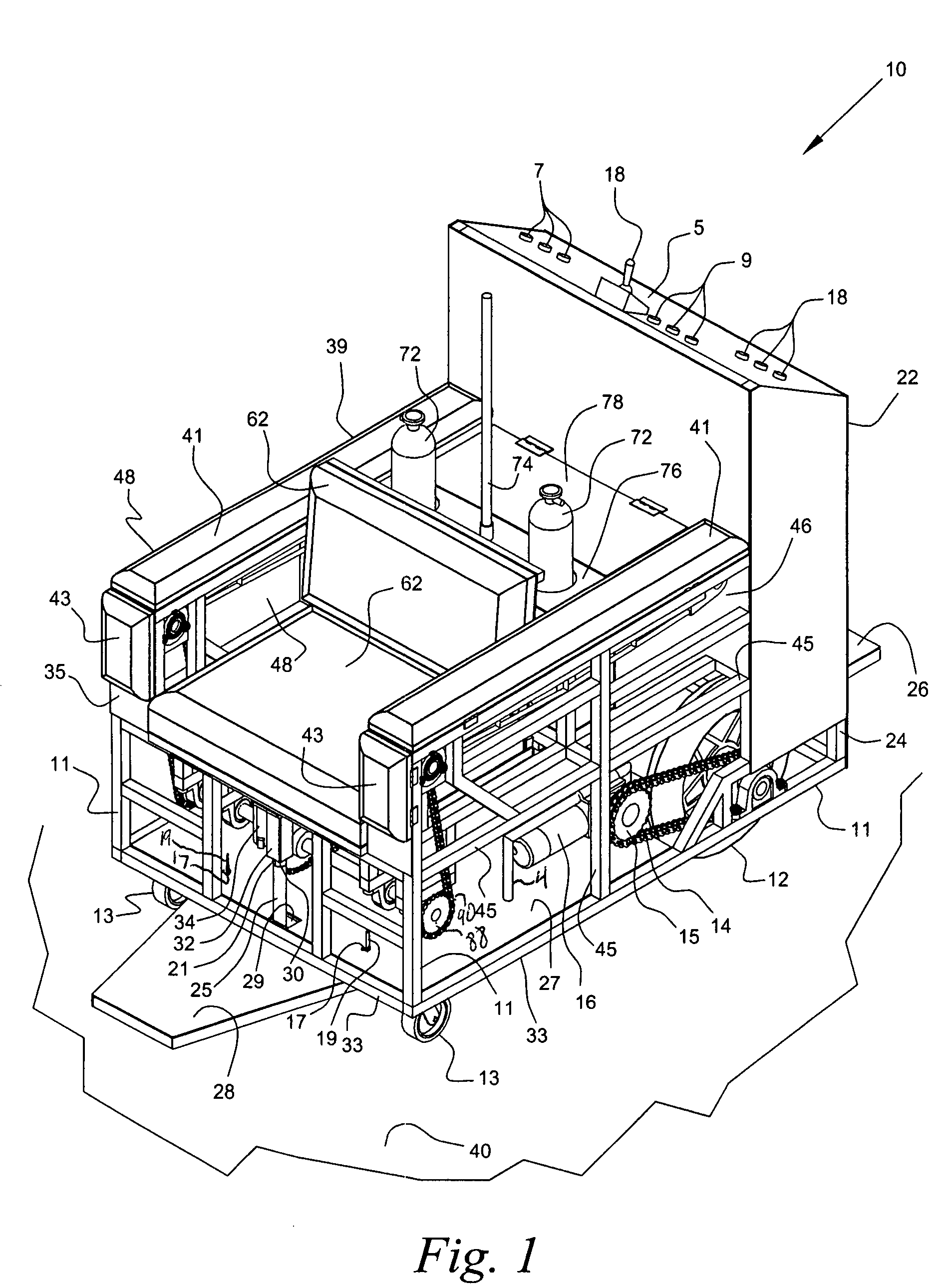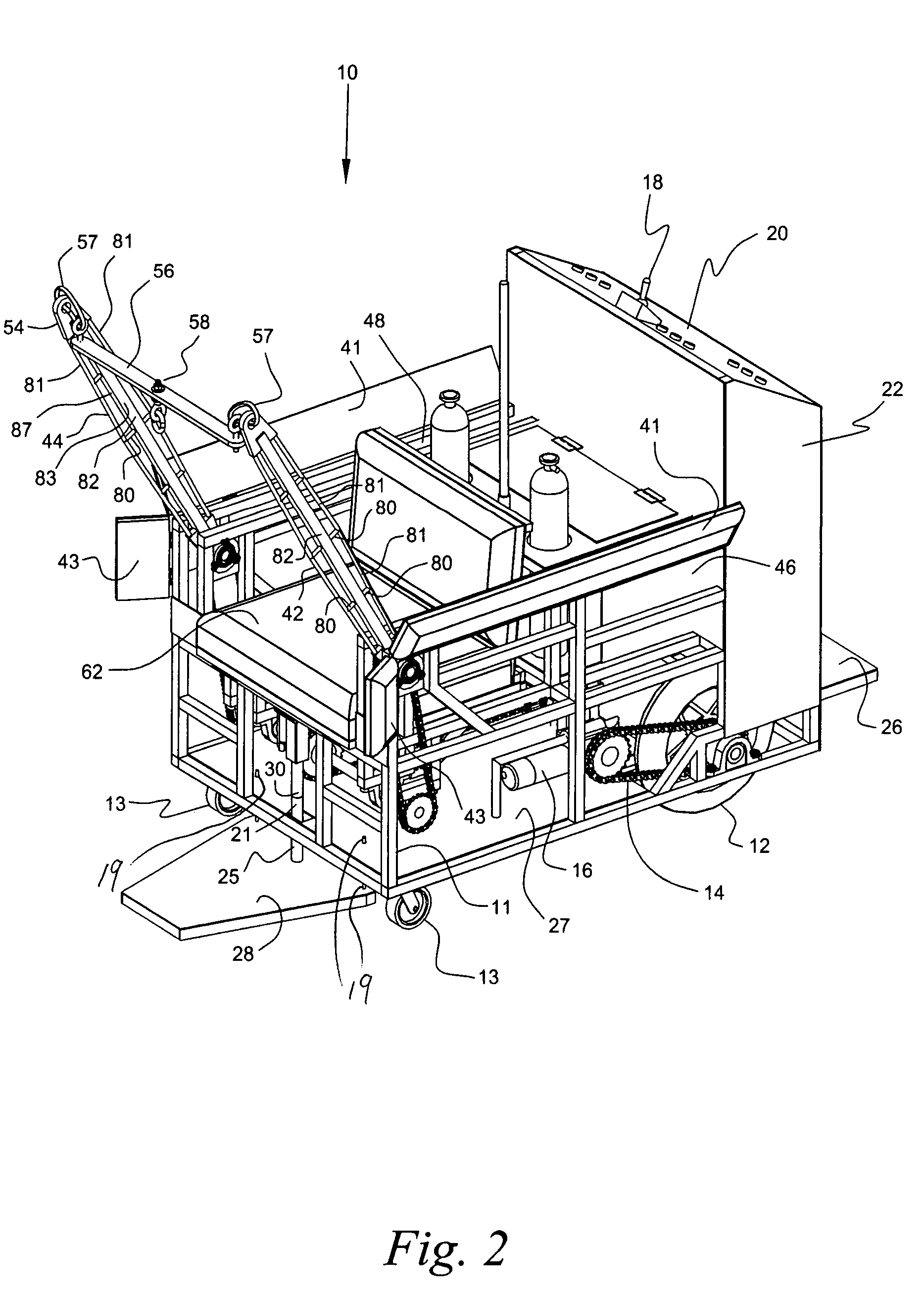Device for transporting a physically impaired person
a technology for physically impaired people and electric powered devices, which is applied in the direction of electric propulsion mounting, wheelchairs/patient conveyances, wheelchairs/patient conveyances, etc., can solve the problems of operators suffering severe back pain for long periods of time, experiencing permanent back injuries, and not being able to “assist” operators, etc., to achieve the effect of promoting faster and safer movement of the devi
- Summary
- Abstract
- Description
- Claims
- Application Information
AI Technical Summary
Benefits of technology
Problems solved by technology
Method used
Image
Examples
Embodiment Construction
[0048]Referring now to FIGS. 1-9, a device for transporting a physically impaired person in accordance with the present invention is denoted by numeral 10. The device 10 includes a support frame member 11 having opposite pivoting front wheels or castors 13, and opposite, solid rubber rear drive wheels 12 operated by chains 14 that engage and receive rotary motion from drive sprockets 15 that are secured to and rotated by battery (not depicted) powered twenty-four volt, one horsepower D.C. motors 16. The motors 16 are manually controlled via a movable stick or hand switch 18 disposed upon a top portion 20 of a control panel 22 and at a rear portion 24 of the support frame member 11. The stick 18 includes positions that direct the device 10 forward, reverse, right and left via relays (not depicted) in the control panel 22; the relays being wired to the stick 18 and motors 16 to control rotation of the motors 16 via wiring schemes well known to those of ordinary skill in the art. The p...
PUM
 Login to View More
Login to View More Abstract
Description
Claims
Application Information
 Login to View More
Login to View More - R&D
- Intellectual Property
- Life Sciences
- Materials
- Tech Scout
- Unparalleled Data Quality
- Higher Quality Content
- 60% Fewer Hallucinations
Browse by: Latest US Patents, China's latest patents, Technical Efficacy Thesaurus, Application Domain, Technology Topic, Popular Technical Reports.
© 2025 PatSnap. All rights reserved.Legal|Privacy policy|Modern Slavery Act Transparency Statement|Sitemap|About US| Contact US: help@patsnap.com



